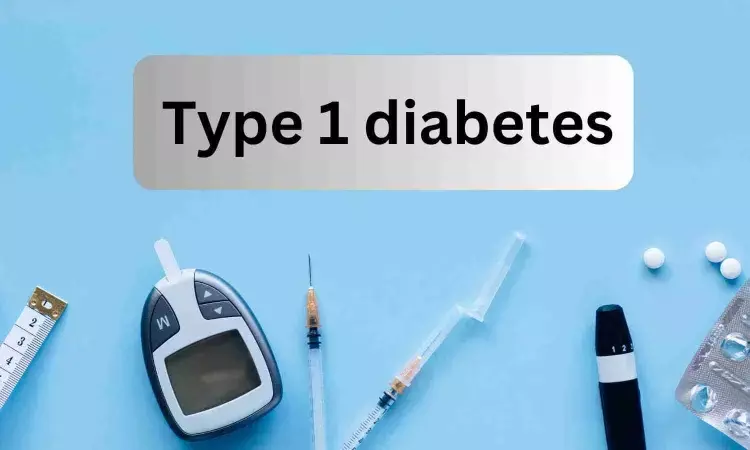- Home
- Medical news & Guidelines
- Anesthesiology
- Cardiology and CTVS
- Critical Care
- Dentistry
- Dermatology
- Diabetes and Endocrinology
- ENT
- Gastroenterology
- Medicine
- Nephrology
- Neurology
- Obstretics-Gynaecology
- Oncology
- Ophthalmology
- Orthopaedics
- Pediatrics-Neonatology
- Psychiatry
- Pulmonology
- Radiology
- Surgery
- Urology
- Laboratory Medicine
- Diet
- Nursing
- Paramedical
- Physiotherapy
- Health news
- Fact Check
- Bone Health Fact Check
- Brain Health Fact Check
- Cancer Related Fact Check
- Child Care Fact Check
- Dental and oral health fact check
- Diabetes and metabolic health fact check
- Diet and Nutrition Fact Check
- Eye and ENT Care Fact Check
- Fitness fact check
- Gut health fact check
- Heart health fact check
- Kidney health fact check
- Medical education fact check
- Men's health fact check
- Respiratory fact check
- Skin and hair care fact check
- Vaccine and Immunization fact check
- Women's health fact check
- AYUSH
- State News
- Andaman and Nicobar Islands
- Andhra Pradesh
- Arunachal Pradesh
- Assam
- Bihar
- Chandigarh
- Chattisgarh
- Dadra and Nagar Haveli
- Daman and Diu
- Delhi
- Goa
- Gujarat
- Haryana
- Himachal Pradesh
- Jammu & Kashmir
- Jharkhand
- Karnataka
- Kerala
- Ladakh
- Lakshadweep
- Madhya Pradesh
- Maharashtra
- Manipur
- Meghalaya
- Mizoram
- Nagaland
- Odisha
- Puducherry
- Punjab
- Rajasthan
- Sikkim
- Tamil Nadu
- Telangana
- Tripura
- Uttar Pradesh
- Uttrakhand
- West Bengal
- Medical Education
- Industry
Celiac and Thyroid Diseases Linked to Higher Risk of Type 1 Diabetes, Especially in Youth: Study Shows

USA: A study published in Diabetes, Obesity and Metabolism (based on 2017-2023 data) found that individuals with celiac or thyroid disease have a significantly higher risk of developing type 1 diabetes (T1D). The risk was found to be highest among those younger than 18 years of age.
Conducted by Dr. Steve V. Edelman and colleagues from the University of California San Diego, the study utilized real-world data to examine whether individuals with autoimmune conditions such as celiac disease, hyperthyroidism, or hypothyroidism were more likely to develop T1D than those without these conditions.
Researchers carried out a retrospective, observational matched-cohort analysis using claims data. The study population included individuals diagnosed with one of the three autoimmune disorders and a matched control group without any of those conditions. Using a 1:1 propensity score matching method, participants were matched based on baseline demographics and clinical characteristics. The incidence of T1D was then compared between the groups using Cox proportional hazards models.
The following were the key findings:
- Individuals with celiac disease had a type 1 diabetes (T1D) incidence of 0.14%, compared to 0.06% among their matched controls.
- In the hyperthyroidism group, T1D developed in 0.17% of individuals, while only 0.06% of the control group developed the condition.
- Among individuals with hypothyroidism, 0.18% developed T1D versus 0.08% in their matched controls.
- The hazard ratio (HR) for developing T1D was 2.54 for those with celiac disease.
- For individuals with hyperthyroidism, the HR for T1D was 2.98.
- The HR was 2.41 for individuals with hypothyroidism.
- All associations were highly statistically significant.
- The data indicated that individuals with any of the three autoimmune conditions were more than twice—and in some cases nearly three times—as likely to develop T1D compared to those without such conditions.
- T1D onset occurred earlier in individuals with pre-existing autoimmune diseases than in those without.
- The elevated risk was especially evident in individuals younger than 18 years, highlighting the need for early and regular monitoring in children with autoimmune conditions.
These results emphasize the importance of early screening for type 1 diabetes in people with autoimmune diseases. Researchers suggest that testing for diabetes-related autoantibodies in these high-risk groups could facilitate early detection of stage 2 T1D—before the onset of symptoms—offering the chance to implement disease-modifying interventions and avoid serious complications from sudden onset.
The authors concluded, "The study highlights a critical overlap in autoimmune pathways and supports integrating routine diabetes screening into the care protocols for individuals with celiac disease and thyroid dysfunction."
Reference:
Edelman SV, Agardh D, Cui N, Hao L, Wieloch M, Meneghini L. Risk of new-onset type 1 diabetes in individuals with celiac disease and thyroid disease-An observational study. Diabetes Obes Metab. 2025 Aug;27(8):4229-4238. doi: 10.1111/dom.16454. Epub 2025 May 28. PMID: 40437819; PMCID: PMC12232353.
Dr Kamal Kant Kohli-MBBS, DTCD- a chest specialist with more than 30 years of practice and a flair for writing clinical articles, Dr Kamal Kant Kohli joined Medical Dialogues as a Chief Editor of Medical News. Besides writing articles, as an editor, he proofreads and verifies all the medical content published on Medical Dialogues including those coming from journals, studies,medical conferences,guidelines etc. Email: drkohli@medicaldialogues.in. Contact no. 011-43720751


